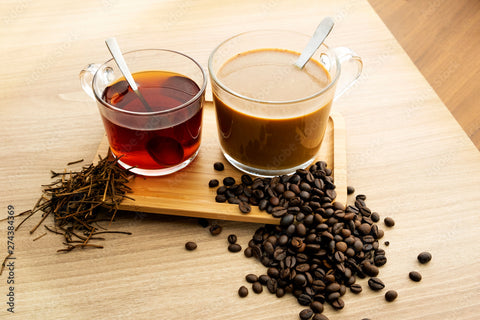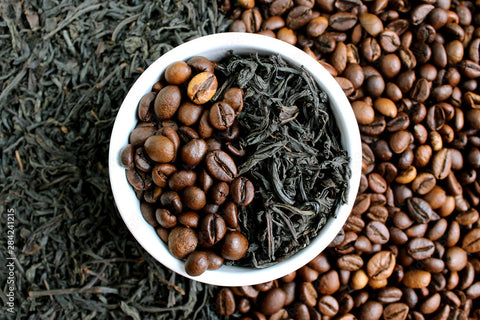Debunking the Myth: Does Tea Have More Caffeine Than Coffee?
Tea and coffee are two of the most popular beverages globally, loved for their rich flavors and energizing effects. However, when it comes to caffeine content, there's often confusion. Many assume coffee packs a stronger caffeine punch, but is that always the case?

Caffeine Content: Tea vs. Coffee
Tea and coffee both contain caffeine, a natural stimulant known for its ability to increase alertness and ward off drowsiness. However, the caffeine content varies between the two beverages.
On average, an 8-ounce cup of brewed coffee contains about 95 milligrams of caffeine, while the same amount of brewed tea typically contains around 30-50 milligrams. However, these values can vary based on factors such as brewing time, type of tea or coffee, and serving size.
Factors Affecting Caffeine Levels
Several factors influence the caffeine content in tea and coffee:
-
Type of Tea or Coffee: Different varieties of tea and coffee contain varying levels of caffeine. For example, black tea generally has more caffeine than green or white tea, while robusta coffee beans contain more caffeine than arabica beans.
-
Brewing Time: The longer tea leaves or coffee grounds steep, the higher the caffeine concentration in the resulting beverage.
-
Serving Size: Larger servings naturally contain more caffeine. Be mindful of portion sizes when comparing caffeine levels.
-
Processing Methods: Tea leaves and coffee beans undergo different processing methods that can affect caffeine content. For instance, the roasting process for coffee beans can impact caffeine levels.
-
Personal Sensitivity: Individuals may react differently to caffeine based on factors such as age, weight, metabolism, and tolerance levels.

Health Considerations
While both tea and coffee offer caffeine-induced energy boosts, it's essential to consider potential health implications. Excessive caffeine consumption can lead to side effects such as insomnia, jitteriness, increased heart rate, and digestive issues. Additionally, some people may be more sensitive to caffeine than others, experiencing adverse effects even with moderate consumption.
Tea: Beyond Caffeine
Beyond its caffeine content, tea offers numerous health benefits. Rich in antioxidants, tea consumption has been linked to reduced risk of chronic diseases, including heart disease and certain types of cancer. Furthermore, different types of tea, such as green tea and herbal teas, boast unique properties that can promote overall well-being.
Coffee: More Than Just Caffeine
Similarly, coffee offers more than just a caffeine kick. Studies suggest that moderate coffee consumption may reduce the risk of Parkinson's disease, Alzheimer's disease, and type 2 diabetes. Coffee is also a significant source of antioxidants and nutrients, such as riboflavin (vitamin B2) and magnesium.
 Conclusion
Conclusion
In the debate between tea and coffee, caffeine content is just one factor to consider. While coffee typically contains more caffeine per serving, tea offers its own set of health benefits and can be a suitable alternative for those seeking a milder stimulant. Ultimately, the choice between tea and coffee comes down to personal preference, taste, and individual health considerations. So whether you're team tea or team coffee, enjoy your cuppa mindfully and reap the benefits of these beloved beverages.
